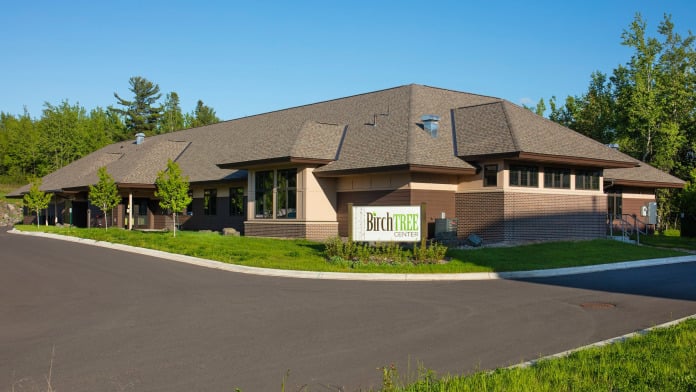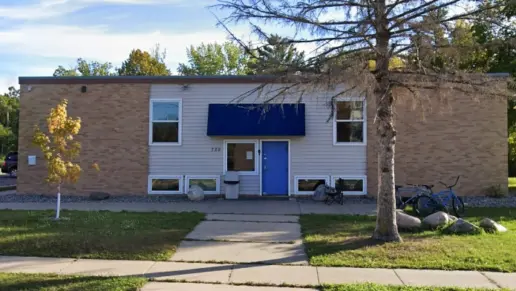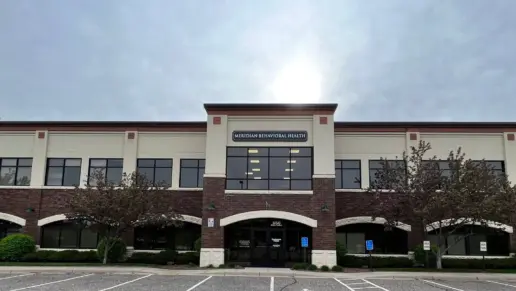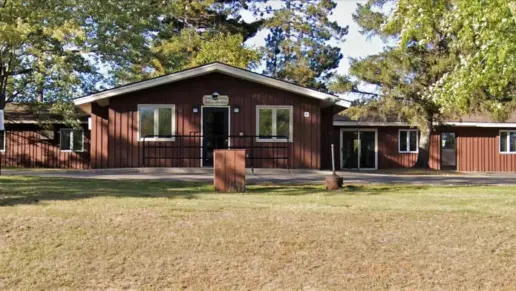Birch Tree was an oasis for me in a time of need. The staff there were very positive and compassionate people. They truly do care about people. They also help people access services and support in the community for when you leave. The facility is beautiful. It's very new an ...
About Birch Tree Center
Birch Tree Center is a private residential rehab offering substance use disorder treatment for adults in Duluth, Michigan. They provide psychiatric services, diagnostic evaluations, dual-diagnosis addiction treatment programs, and medication therapies.
Part of the Thrive Behavioral Health Network, the Birch Tree Center specializes in short term residential mental health crisis services for adults experiencing a mental health emergency. Through clinical assessments and treatment planning, the Birch Center provides stabilization, emotional support, 24 hour nursing care, medication intervention and management, recovery focused care, skill development, and transitional support.
The Birch Tree Center has the clinical expertise, with nursing staff, psychiatrists, and clinicians, to provide strengths-based crisis assessment. This evaluates patients for substance use disorders and/or co-occurring mental health conditions and ultimately informs the support plan and therapeutic interventions for each individual in a mental health crisis.
Individuals admitted to the Birch Tree Center will receive a crisis assessment, comprehensive treatment planning, 24 hour nursing care, individual and group counseling, medication management, family support, recovery-focused care, and skill building to enhance coping skills and symptom management. Patients will also be supported in developing a personalized plan for health and wellness and independent living. Following short term treatment, patients are supported in transitioning back home through a comprehensive discharge plan that promotes relapse prevention and community based support.
Part of the treatment at the Birch Tree Center includes medication management by supporting patients find the right medications to support their mental health conditions. It is only through a comprehensive assessment that clinicians can understand each patient’s individual needs and complex circumstances and prescribe the right medication. Services also include coordinated care and case management.
The Birch Tree Center works with individuals, insurance providers, MNSure, and medical assistance. They also help patients to secure funding to address the cost of care.
Latest Reviews
Rehab Score
Gallery

Location
Other Forms of Payment
Private insurance refers to any kind of healthcare coverage that isn't from the state or federal government. This includes individual and family plans offered by an employer or purchased from the Insurance Marketplace. Every plan will have different requirements and out of pocket costs so be sure to get the full details before you start treatment.
Self-pay involves paying for treatment out of your own pocket. You can use savings or credit, get a personal loan, or receive help from family and friends to fund your treatment. If you don't have insurance or your insurance plan doesn't cover a specific program, self-pay can help ensure you still get the care you need.
Financial aid can take many forms. Centers may have grants or scholarships available to clients who meet eligibility requirements. Programs that receive SAMHSA grants may have financial aid available for those who need treatment as well. Grants and scholarships can help you pai for treatment without having to repay.
Medicaid is a state based program that helps lower-income individuals and families pay for healthcare. Medicaid covers addiction treatment so those enrolled can use their coverage to pay for rehab. When a program accepts Medicaid the client often pays very little or nothing out of their own pocket.
Medicare is a federal program that provides health insurance for those 65 and older. It also serves people under 65 with chronic and disabling health challenges. To use Medicare for addiction treatment you need to find a program that accepts Medicare and is in network with your plan. Out of pocket costs and preauthorization requirements vary, so always check with your provider.
Addiction Treatments
Levels of Care
Treatments
Many of those suffering from addiction also suffer from mental or emotional illnesses like schizophrenia, bipolar disorder, depression, or anxiety disorders. Rehab and other substance abuse facilities treating those with a dual diagnosis or co-occurring disorder administer psychiatric treatment to address the person's mental health issue in addition to drug and alcohol rehabilitation.
Mental health rehabs focus on helping individuals recover from mental illnesses like bipolar disorder, clinical depression, anxiety disorders, schizophrenia, and more. Mental health professionals at these facilities are trained to understand and treat mental health issues, both in individual and group settings.
Programs


Clinical Services
Research clearly demonstrates that recovery is far more successful and sustainable when loved ones like family members participate in rehab and substance abuse treatment. Genetic factors may be at play when it comes to drug and alcohol addiction, as well as mental health issues. Family dynamics often play a critical role in addiction triggers, and if properly educated, family members can be a strong source of support when it comes to rehabilitation.
Group therapy is any therapeutic work that happens in a group (not one-on-one). There are a number of different group therapy modalities, including support groups, experiential therapy, psycho-education, and more. Group therapy involves treatment as well as processing interaction between group members.
Motivational Interviewing (MI) is a clinical approach to helping people with substance abuse issues and other conditions shift behavior in positive ways. It is more goal-oriented than traditional psychotherapy, as MI counselors directly attempt to get clients to consider making behavioral change (rather than wait for them to come to conclusions themselves). Its primary purpose is to resolve ambivalence and help clients become able to make healthy choices freely.
Life skills trainings involve all the skills a person must have in order to function successfully in the world. These include time management, career guidance, money management, and effective communication. Truly successful addiction recovery is based on the ability to not only live substance-free, but to thrive. Life skills teaches the practical necessities of functioning in society, which sets clients up for success in life, and therefore sobriety.
In individual therapy, a patient meets one-on-one with a trained psychologist or counselor. Therapy is a pivotal part of effective substance abuse treatment, as it often covers root causes of addiction, including challenges faced by the patient in their social, family, and work/school life.
Trauma therapy addresses traumatic incidents from a client's past that are likely affecting their present-day experience. Trauma is often one of the primary triggers and potential causes of addiction, and can stem from child sexual abuse, domestic violence, having a parent with a mental illness, losing one or both parents at a young age, teenage or adult sexual assault, or any number of other factors. The purpose of trauma therapy is to allow a patient to process trauma and move through and past it, with the help of trained and compassionate mental health professionals.
Amenities
-
Private Rooms
-
Residential Setting
Contact Information
4730 Matterhorn Cir
Duluth, MN 55811


